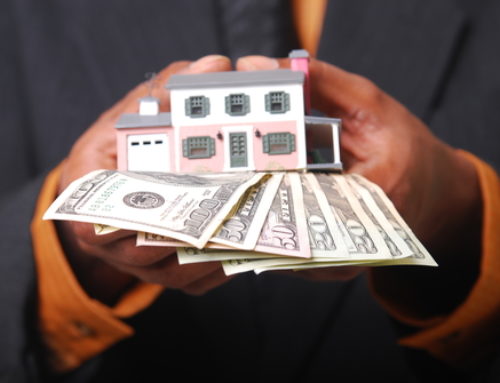A “short sale” is a sale of real estate in which the proceeds from the sale will be “short” of the aggregate amount needed to pay, in full, the liens secured by the property being sold.
Typically, the property being sold is in foreclosure and the lender is willing to accept a lesser amount than the total amount owed—as full payment of its mortgage—in order to avoid the time and expense of completing the foreclosure.
If there are any other lienholders, they must each be willing to accept a “nominal amount” as full payment of their lien, in order to avoid having it extinguished by a foreclosure sale, and the lender must consent to that amount being paid from the sale proceeds. As an incentive to sell the property, the seller is released from liability for the balance of the existing mortgage loan and is even allowed to retain a small portion of the proceeds! Note that if the seller, the lender, or any of the lienholders cannot agree on how the proceeds of the short sale will be distributed, the sale will not be able to be completed, and the purchaser will eventually receive a refund of his/her contract deposit.
Whether or not you should purchase a home that is being sold as a “short sale” depends on your priorities. The big advantage of purchasing a short sale is that you will be able to purchase a home for a substantially cheaper price than you might otherwise be able to. The disadvantages are the delays caused by the need to obtain the consent of the lender and other lienholders, the risk of the sale being cancelled if any lienholders refuse to do so, and the repairs that will, undoubtedly, be needed. (See my article “How Short is the Short Sale Process?”)
In traditional real estate sales, sellers generally expect to sell their property for “fair market value,” which is the price that would be obtained by a seller who is not under any pressure to sell. In a short sale, however, the seller is only receiving a fixed amount, regardless of the sales price, so he/she is not overly concerned. The party that really decides if the price is acceptable is the lender that is receiving the “short payoff,” and since that lender is very much under pressure to sell, the resulting sales price will be less than “fair market value.”
The disadvantages are the additional delays that result from the need to obtain the consent of the payoff lender and any other lien holders, to the sale and to the amount that they will receive in exchange for full satisfaction of their liens. While the contract is between seller and buyer, the buyer will often be unaware—for many months after its execution—if the sale will proceed or not. This is because the needed consent may not be received for quite some time while the payoff lender, and any other lien holders, evaluate whether or not they will allow the sale to be consummated. And if the payoff lender, or any other lienholders, refuse to consent, the contract will be cancelled and the purchaser will have to start the home-buying process anew.
Additionally, the seller will not be willing to make any repairs to the premises (which has probably not been well maintained during the past few years if a foreclosure had been commenced). The likelihood of such deferred maintenance makes it imperative for a short sale purchaser to obtain an engineer’s report from a qualified engineer and ensure that the value of the property takes into consideration the condition it is in.
To summarize, if saving money is your top priority, buying a short sale is a wonderful way to do so because you will save a lot. If, however, you require a “fast closing” and wish to avoid the risk of the sale being cancelled or making the repairs that will be needed after you take occupancy, a traditional sale may be better suited for you.
If you have any questions or comments, please contact me at peter.roach@roachlawfirm.com.
Peter Roach
Peter T. Roach & Associates, P.C.





